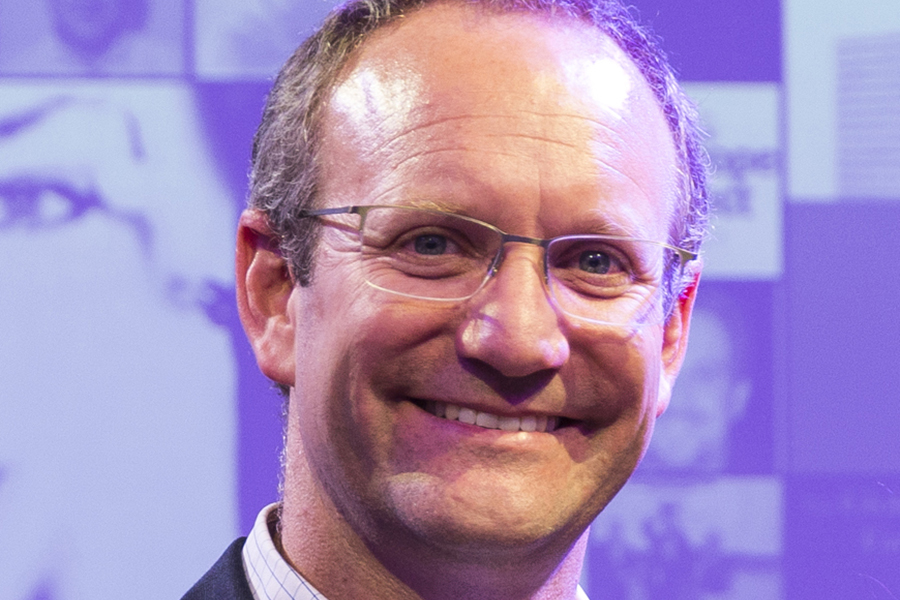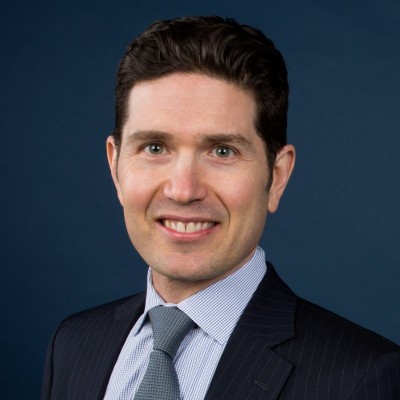The science behind climate change is clear: If we don’t achieve net zero emissions by 2050, we will not limit the planet to a 1.5 degrees Centigrade temperature change. The level of climate impact will be catastrophic to life as we know it on Earth. This realization is what drives Gonzalo Muñoz (above), co-founder of Sistema B, a 2019 UN COP Climate Champion.
Starting with the 2019 UN Climate Conference, COP25, through this year and into next year’s COP in Glasgow, the private sector’s role in addressing climate change and taking climate action has taken a front seat alongside the duties of the public sector and civil service. According to Muñoz, business leadership must either commit to becoming net-zero by 2050, or even better, 2030, or “be comfortable being a part of the problem.”
Muñoz believes Certified B Corporations, businesses that have been verified for their positive impact on people and the planet, have an imperative to pledge, commit, and take action on their climate impact. He argues that to not do so would be a reason to forfeit their certification in coming years. This direct, science-centered approach is how Muñoz and the UN are working to make meaningful action — before it’s too late. And this passion has helped result in the NetZero2030 commitments by now nearly 1,000 B Corps, meaning that companies are aiming to hit the net-zero goal 20 years before required to do so by the Paris Agreements.
I recently spoke with Muñoz as part of my research on B Corps and stakeholder capitalism. Here’s part of our conversation, where he discussed NetZero 2030, #RaceToZero, and how businesses of all sizes can get involved and take climate action today.
Tell me about the NetZero 2030, how it began, and the commitment of companies such as B Corporations to this goal.
Gonzalo Munoz: It’s important to begin the story before NetZero 2030, because what was instrumental was that Chile took the lead on the UN Climate Change Conference, COP25, after Brazil stepped away. COP rotates through five major areas of the world, and it was time for Latin America to be the host. Chile took the baton, and one of the things that an incoming presidency for COP must decide is naming what is called the High Level Climate Action Champion, a role created in the Paris Agreement, to lead non-party stakeholders.
The role of the High Level Climate Action Champion is to mobilize action among those sectors, and until COP25, all of the previous champions were civil servants. For Chile, it was evident that the role had to be led by somebody coming from the non-state sector, and they named me. For the first time, the High Level Climate Action Champion came from the private sector, which has since been replicated by the U.K. who nominated Nigel Topping from We Mean Business, another private sector individual.
The second action Chile took was to ask the team and me to position science at the center. They wanted us to say, “Okay, we have to follow science, and science has just spoken.” In October 2018, a couple of months before COP24, climate scientists at the APCC (APEC Climate Center) released a report saying that the best option was to aim for a temperature increase of 1.5 degrees centigrade. To achieve this, the world has to be net-zero on carbon emissions by 2050. Meaning that by 2050, we have to emit equal, or lesser, amounts of CO2 that nature is capable of sequestering.
We launched the Climate Ambition Alliance at the Secretary-General Summit in September 2019 for everyone who wanted to follow a NetZero 2050 target. At that time, 66 countries said, “We’re in.” But it’s not just about the countries. We started putting together businesses, investors, sub-national regions, and cities to work together toward NetZero by 2050.
To write the material for 2050, you need some organizations, people, and countries to lead the way and set their targets sooner than 2050. That’s why on September 1 last year, I went to different meetings with B Corps, and said, “Guys, B Corps always lead the way. We have an understanding of how important it is to follow science. We operate on a vision that certain moral duties are higher than local regulation. I think it would be important for the B Corps to step forward and say, ‘If the world needs to be NetZero by 2050, then we, too, will be NetZero by 2030.'”
We had 533 B Corps join this commitment before COP25. It was the most significant number of companies at that time.
This year, we expect all B Corps to commit. Not committing, at least to 2050, is recognizing that you are comfortable being part of the problem. So, we are sending the message this year that every B Corp in the world should at least be committed to becoming net-zero by 2050. Hopefully, we can reach Glasgow with at least half of them being dedicated to this goal.
What practices, tools, and advice exists for companies to get started? How do they do it? How do they get guidance?
When it comes to the business sector, there are six ways to join Race to Zero, and all of them include science-based targets — that’s super important. It’s not just stating that you will do something, be something, or make a commitment. It’s called the Four P’s — you have to: pledge, plan, proceed, and publish.
When it comes to pledging, you have six ways to pledge. If you’re a B Corp, you can join immediately through the NetZero 2030, or even the NetZero 2050, target.
When it comes to big companies, the UN global compact has one entry point created by the Secretary-General Summit in 2019; it’s called the 1.5 Business Pledge. Any business of the world can join whether you are part of the UN Global Compact or not.
If you are a SME and part of a chamber of commerce or connected to a chamber of commerce, the SME Climate Hub would be the best approach.
If you’re a tech company, Amazon has created the Climate Pledge; which now has around 15 companies worldwide. We have the fashion charters for companies related to the fashion industry, through the United Nations. If you’re a company that is part of the B Team, then you can join through there.
All of these entry points are aligned with science-based targets. And we’re expecting to create at least two or three more. For example, we’re working with international wineries for climate action, that creates broader possibilities for the agribusiness sector.
We also are creating a new category for climate action under the United Nations Convention for Climate Change. Hopefully, at the end of the year, we will have the possibility of creating this entry point for sports, such as clubs, associations, and media sports organizations. Then, we’ll try and create another one for schools.
What do you say to businesses affected by the COVID economic downturn that are more focused on getting their businesses back on track, instead of focusing on goals such as climate change, which may still be decades away?
I started small businesses, so I walk in those shoes, too. Despite the hardships, many business owners are declaring a commitment to this cause. When you’re a small company, it’s a lot easier than when you’re a big multinational. Realize that at this point, you’re 30 years ahead when it comes to the Net Zero by 2050 target. Of course, you don’t know how the world will look like 30 years, but things wont change for the better unless we start to commit now.
We need to increase the number of commitments to change the culture. When it comes to small business, this is a massive opportunity. We already have many of the big multinationals declaring they will be net-zero by 2050. Now, they urgently need the SMEs of the world to follow, and say, “I’m with you, count on me.”
It’s not about ESG; it’s about how much a lack of climate risk action will increase your investment’s general risk. We’re seeing more money moving a lot faster toward companies that have this commitment in place. So, even just taking the pledge gives you the possibility of becoming a better choice for financial markets.
Do you have any case studies or examples of projects, companies, or people that inspire you?
We launched the Race to Zero brand formally on June 5, 2020, and recently, we had the Race to Zero Dialogues. We had more than 63 million #RacetoZero instances. How does a brand go from zero to 63 million in less than five months? That’s incredible. It’s not only about the brand itself; it’s everything related to it. From Antonio Gutierrez to Matt Damon, you can see how different personalities of the world are speaking about Race to Zero as a concept, and including it in their speeches. That is a very positive narrative, and hopefully, we can reach Glasgow with impact still at that level.




































